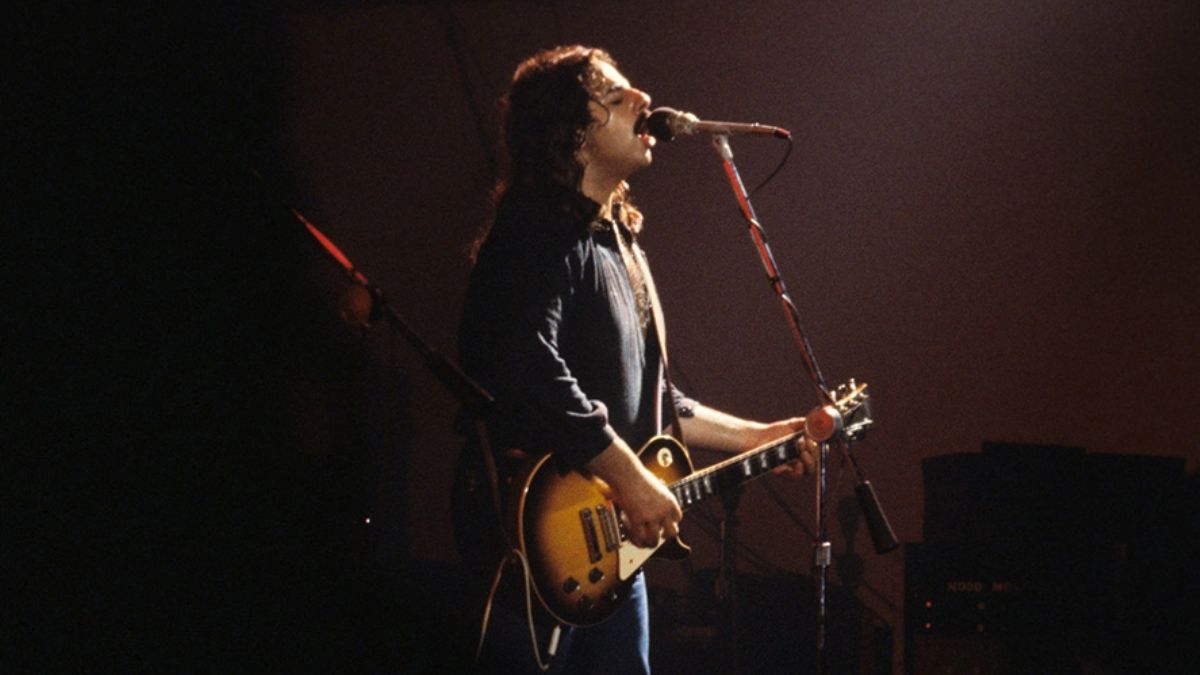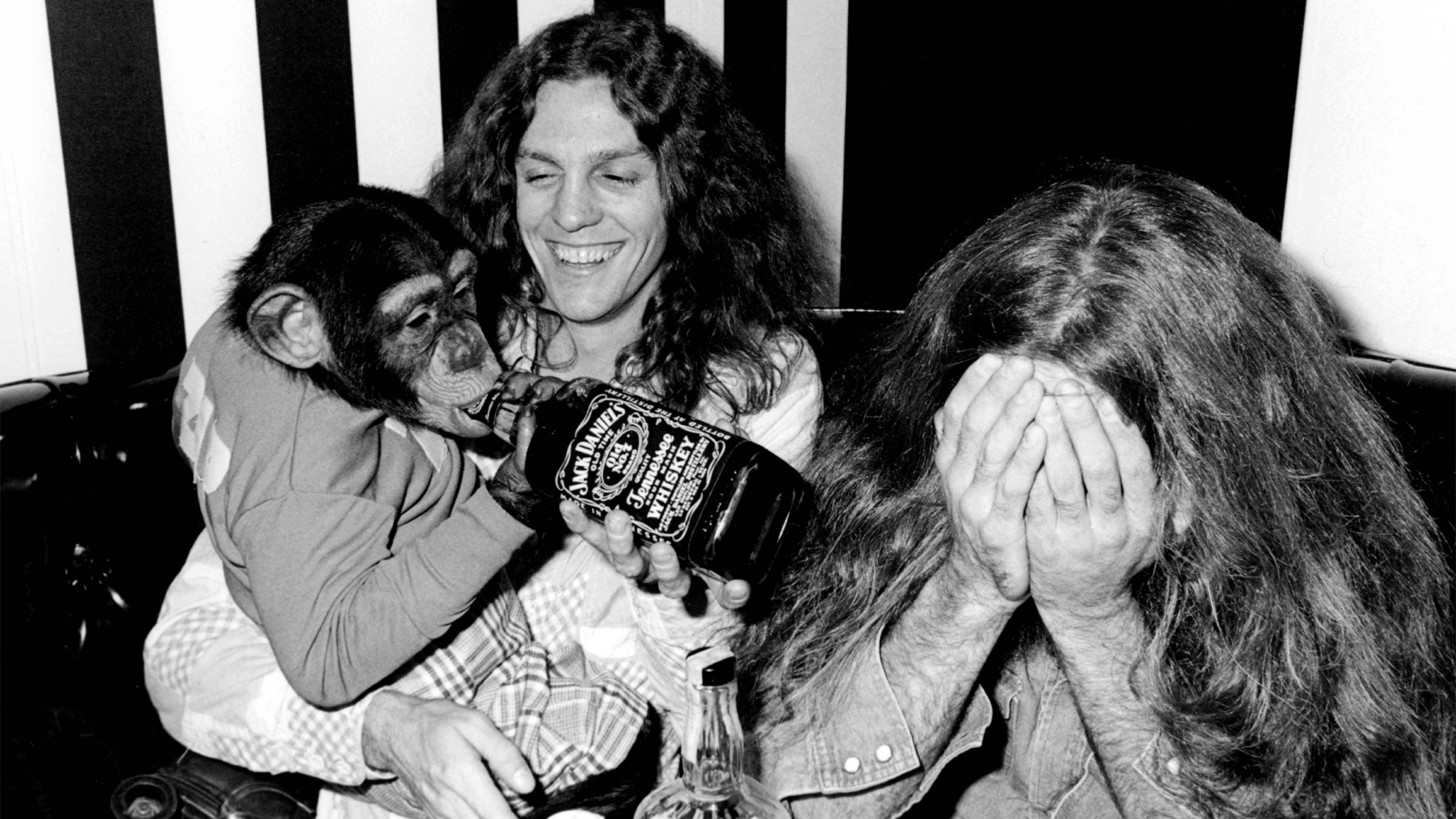“An electric performer and beloved musician who will be remembered for his outgoing personality and passion for music”: Former Outlaws guitarist Freddie Salem dies at 70
The Les Paul-wielding guitarist featured on four studio albums and one live album with the Southern rock band, and would later go on to record with Barbra Streisand

All the latest guitar news, interviews, lessons, reviews, deals and more, direct to your inbox!
You are now subscribed
Your newsletter sign-up was successful
Freddie Salem, who played guitar in the Outlaws between 1977-1983, has died at age 70.
His passing, which follows complications related to cancer, has been confirmed by the Facebook page of his latest project, Freddie Salem and Lonewolf.
The short post reads: “This morning, the Heavens parted for the arrival of a legend. Rock on high, Freddie Salem. Until we meet again.”
Outlaws extended their sympathies on their social channels, paying tribute to “an electric performer and beloved musician,” who featured on four Outlaws records, starting with 1978’s Playin’ To Win.
The post adds that he will be “remembered for his outgoing personality and passion for music.”
Salem had earned a reputation in Southern rock circles by the time he joined Outlaws, who were three albums deep into their career at that time, with the nine-minute, lead-lavished hit Green Grass and High Tides – later brought to a new generation of listeners by Metallica – the feather in the band’s cap.
Born on May 15, 1954, in Akron, Ohio he transitioned to the guitar at 15 after three years behind a drum kit and shaped his sound in the image of B.B. King, Carlos Santana, and Jeff Beck.
All the latest guitar news, interviews, lessons, reviews, deals and more, direct to your inbox!
He would go on to join Los Angeles-based psychedelic soul band The Chambers Brothers in ‘73, with whom he’d spend the next 18 months touring and recording. Those experiences helped forge a path into Outlaws, replacing the outgoing Henry Paul.
“I had met the band a year earlier in Los Angeles,” he once explained to the Road to Jacksonville Webzine. “They asked me to fly down to Tampa and jam. We rehearsed for one week and hit the road. [My] first gig was at Boston Gardens in Massachusetts. We continued from there. I was 23 years old at the time.”
With a Les Paul slung over his shoulder – the guitar he loved most throughout his career – he featured on the band’s 1978 live album, Bring It Back Alive (also known as Bring 'Em Back Alive).
Not only did this provide Outlaws fans with their first recorded taste of Salem’s playing, it featured a song he’d written, I Hope You Don’t Mind.
The band even managed to stretch the solos on Green Grass… to a 20-minute opus that further showcased Salem’s talents.
Later that year, Outlaws supported The Rolling Stones on their Some Girls tour, an experience that Salem said was unforgettable.
“No other band in the world tours like the Stones,” he told Road to Jacksonville. “It's similar to a traveling circus. Always something going on. The experience was incomparable to anything I had ever experienced. Even though we had performed with the Grateful Dead and at other stadium shows, nothing even came close to the Stones.”
Over the next four years he would record four studio albums with the band – Playin’ to Win (1978), In the Eye of the Storm (1979), Ghost Riders (1980), and Los Hombres Malo (1982).
Their 1980 effort included a cover of Stan Jones’ instrumental, (Ghost) Riders, and the success of the track propelled the band to a No. 15 spot on Billboard’s Mainstream Rock Chart. The record is certified gold.
Salem’s debut solo album, Cat Dance, came in 1982 and acted as a precursor for his departure from the band a year later.
Reflecting on his tenure in the band, he said: “Things had unraveled after seven years of touring and recording. Our record label had dropped the band, Billy [Jones, guitarist], Harvey [Dalton Arnold, bassist], and Monte [Yoho, drummer] were gone, and things deteriorated from there.
“I did not want to see the band go backward,” he continues. “So, the decision was made between Hughie [Thomasson, guitarist and singer] and myself.”
Much of Salem's post-Outlaws career saw him focusing on session work, which included playing acoustic guitar on several Barbra Streisand songs.
He has also jammed with Joe Bonamassa and produced and performed with the Ohio band The Godz.
“Most memories of my tenure with the Outlaws were the best of times,” Salem reflected. “We became a magnificent recording and live headlining band, selling out major arenas and coliseums worldwide. It was an exciting time to build the visibility and success of the band. As far as regrets, none.”
A freelance writer with a penchant for music that gets weird, Phil is a regular contributor to Prog, Guitar World, and Total Guitar magazines and is especially keen on shining a light on unknown artists. Outside of the journalism realm, you can find him writing angular riffs in progressive metal band, Prognosis, in which he slings an 8-string Strandberg Boden Original, churning that low string through a variety of tunings. He's also a published author and is currently penning his debut novel which chucks fantasy, mythology and humanity into a great big melting pot.




